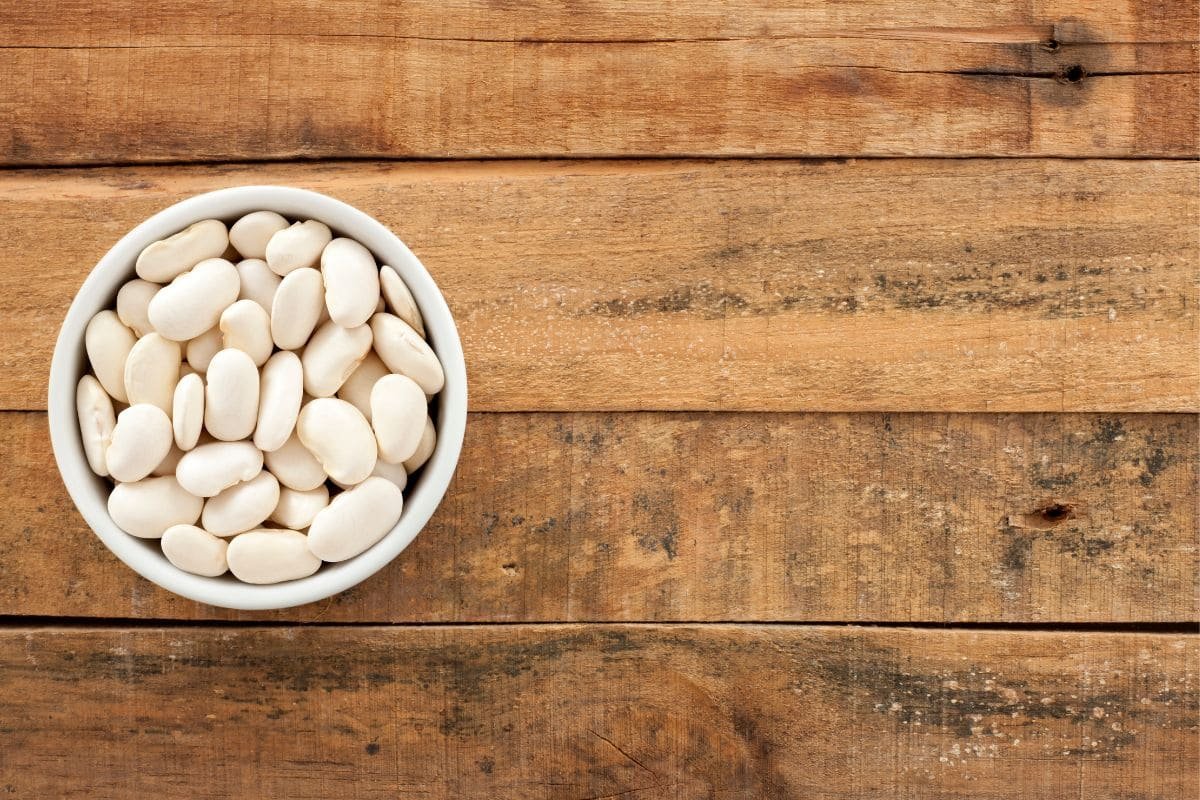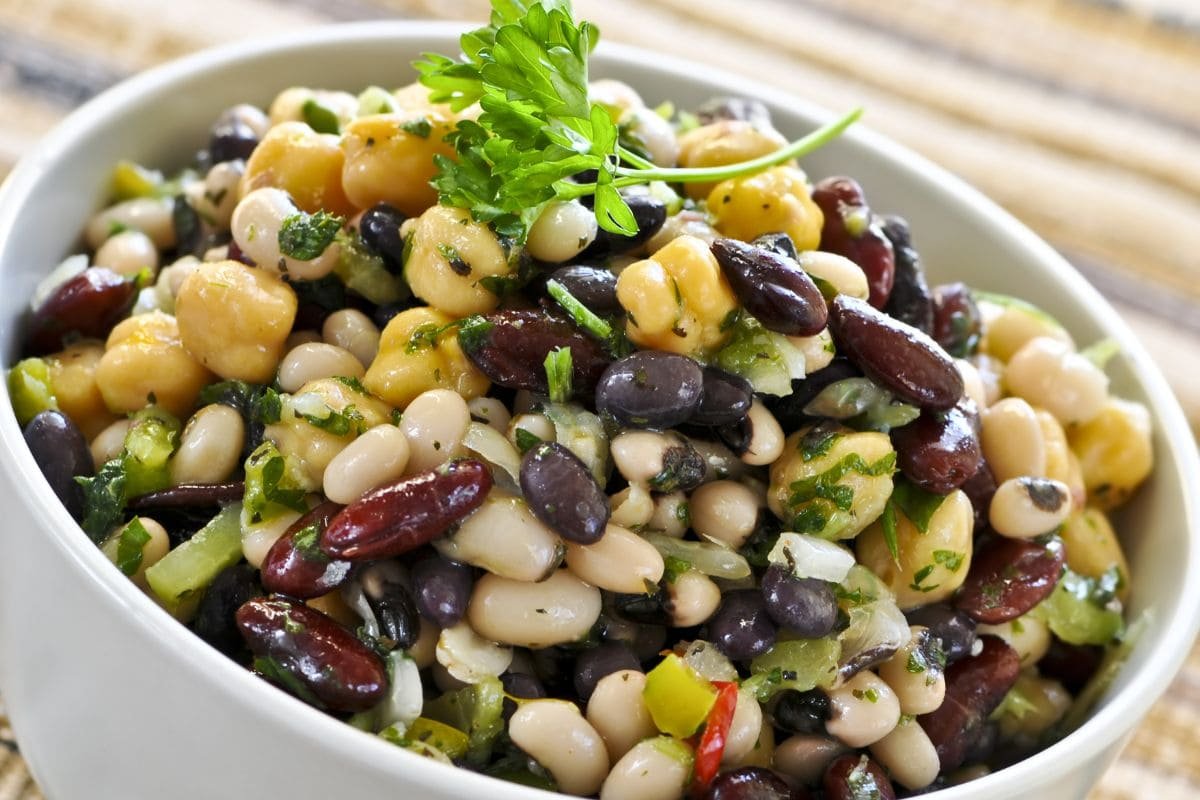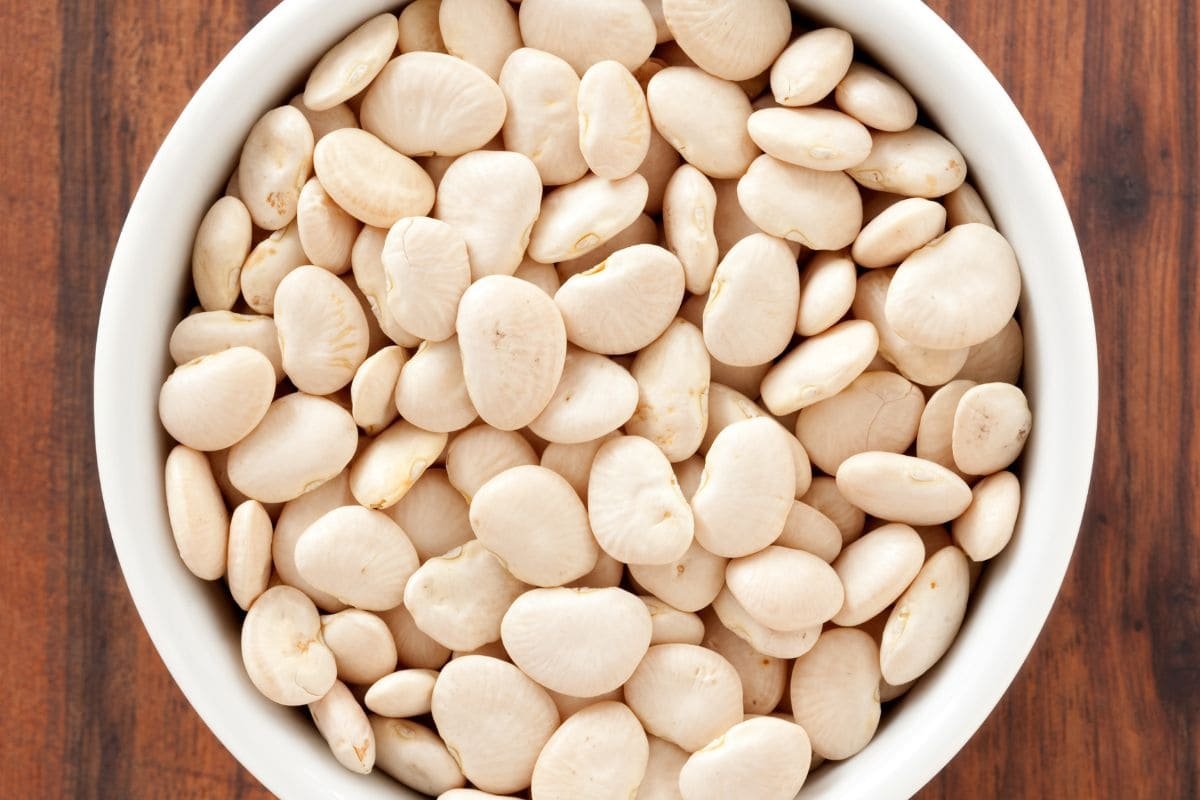In the quest for a healthier lifestyle, the spotlight often lands on the foods we choose to eat. Among the myriad of options, butter beans, also known as lima beans, emerge as a nutritional powerhouse worthy of attention. This article delves into the world of butter beans, exploring their health benefits, nutritional content, and versatile culinary uses. From their role in heart health and weight management to their comparison with other legumes, we’ll uncover why these creamy beans are more than just a side dish. So, buckle up as we embark on a journey to discover if butter beans truly deserve a place in your diet.
Introduction to Butter Beans
Overview of Butter Beans
Butter beans, with their creamy texture and subtle flavor, have been a staple in pantries around the globe. Originating from South America, these beans have been cultivated for over 9,000 years, a testament to their enduring appeal. But what exactly are butter beans? Often confused with their close relative, the lima bean, butter beans are essentially the mature version of lima beans, boasting a larger size and a buttery texture that has won over the hearts of many.
The journey of butter beans from a humble legume to a celebrated nutritional powerhouse is nothing short of remarkable. Packed with essential nutrients, these beans offer a wealth of health benefits that can contribute to a balanced diet. Whether you’re a plant-based foodie or a meat-lover looking to diversify your protein sources, butter beans provide a versatile and nutritious option.
Nutritional Powerhouse
Diving into the nutritional profile of butter beans reveals why they’re hailed as a superfood. Rich in vitamins and minerals, these beans are a fantastic source of fiber, protein, and complex carbohydrates, making them an excellent addition to any meal. But the benefits don’t stop there. Butter beans are also low in calories and fat, making them an ideal choice for those watching their weight.
Moreover, the health benefits of butter beans extend beyond their nutritional content. From supporting heart health to aiding in weight management and improving digestive health, butter beans have proven to be a valuable ally in maintaining overall well-being. Their ability to control blood sugar and prevent anemia further underscores their importance in a healthy diet.
As we delve deeper into the world of butter beans, it becomes clear that these beans are more than just a side dish. They are a testament to the power of simple, whole foods in promoting health and wellness. So, let’s continue our exploration and uncover all the ways butter beans can enrich our lives.
Nutritional Profile of Butter Beans

Macro and Micronutrients
When it comes to the nutritional might of butter beans, these legumes are nothing short of a marvel. A closer look at their macro and micronutrient profile reveals a treasure trove of health benefits. For starters, butter beans are an excellent source of protein, making them a fantastic option for vegetarians, vegans, and anyone looking to boost their protein intake with plant-based sources. This protein is crucial for the repair and building of muscle tissue, not to mention it plays a vital role in overall bodily functions.
But the goodness doesn’t end there. Butter beans are also rich in dietary fiber, both soluble and insoluble. This fiber is a boon for digestive health, helping to keep things moving smoothly in the gut. Moreover, it contributes to a feeling of fullness, which can prevent overeating and support weight management efforts.
On the micronutrient front, butter beans pack a punch with a variety of vitamins and minerals essential for optimal health. They’re a significant source of iron, which is key for energy production and combating fatigue. Additionally, these beans are rich in folate (vitamin B9), crucial for DNA synthesis and repair, as well as potassium, which is vital for heart health and maintaining proper muscle and nerve function.
Vitamins and Minerals
Diving deeper into the vitamins and minerals found in butter beans, we find that they are a goldmine of nutrients. Magnesium, present in butter beans, is essential for muscle and nerve function and helps maintain blood pressure levels. Zinc, another mineral found in these beans, plays a critical role in immune function, wound healing, and DNA synthesis.
Furthermore, butter beans contain calcium, necessary for bone health and muscle function. This makes them an excellent addition to the diet of those who do not consume dairy products. The presence of antioxidants in butter beans, thanks to their polyphenol content, helps combat oxidative stress and inflammation, contributing to overall health and well-being.
Incorporating butter beans into your diet is not just a step towards a more plant-based eating pattern; it’s a leap towards enriching your body with essential nutrients. Whether you’re looking to boost your protein intake, increase your fiber consumption, or simply add more vitamins and minerals to your diet, butter beans are a versatile and nutritious choice that can help you meet your dietary goals.
As we continue to explore the myriad benefits of butter beans, it becomes increasingly clear that these legumes are a powerhouse of nutrition. They offer a simple yet effective way to enhance your diet and support your health, making them a must-have in any kitchen.
Health Benefits of Butter Beans
Heart Health
Butter beans are a boon for the heart. Their high fiber content plays a crucial role in lowering bad cholesterol levels. This, in turn, reduces the risk of heart disease. Moreover, the potassium in butter beans helps manage blood pressure. This makes them an ally in maintaining a healthy heart.
Weight Management
For those on a weight loss journey, butter beans are a dream. They are low in calories yet high in fiber and protein. This combination helps you feel full longer, curbing the urge to snack. Thus, they support weight management effectively.
Digestive Health
The fiber in butter beans also aids digestion. It helps prevent constipation and promotes regular bowel movements. This keeps the digestive system running smoothly. Plus, a healthy gut contributes to overall well-being.
Blood Sugar Control
Butter beans have a low glycemic index. This means they help stabilize blood sugar levels. Their complex carbohydrates break down slowly. This prevents spikes in blood sugar, making them ideal for people with diabetes.
Anemia Prevention
Rich in iron and folate, butter beans can help prevent anemia. Iron is crucial for making hemoglobin, which carries oxygen in the blood. Folate helps in forming red blood cells. Together, they combat fatigue and weakness associated with anemia.
Incorporating butter beans into your diet offers a range of health benefits. From supporting heart health to aiding in weight management and improving digestive health, these beans are a nutritional powerhouse. They also play a role in controlling blood sugar and preventing anemia. This makes them a valuable addition to any diet.
Butter Beans in the Diet
Incorporating Butter Beans into Meals

For starters, butter beans are an excellent option for vegetarians, vegans, and anyone looking to boost their protein intake with plant-based sources. Integrating butter beans into your diet is both easy and delicious. These beans are incredibly versatile, fitting seamlessly into a variety of dishes. Here are some ideas to get you started:
- Salads: Toss cooked butter beans into a salad for a protein boost. They pair well with leafy greens, fresh vegetables, and a tangy dressing.
- Soups and Stews: Add butter beans to soups and stews for a hearty, creamy texture. They absorb flavors beautifully, making your dishes even more savory.
- Side Dishes: Mash butter beans with garlic, olive oil, and herbs for a delicious side. Or, mix them with vegetables for a nutritious accompaniment to your main course.
- Snacks: Roasted butter beans make a crunchy, healthy snack. Season them with your favorite spices and roast until crispy.
Recipe Ideas
Butter beans lend themselves to a myriad of culinary creations. Here are a few recipes to inspire your next meal:
- Butter Bean Hummus: Blend cooked butter beans with tahini, lemon juice, garlic, and olive oil for a smooth, creamy dip.
- Butter Bean and Vegetable Curry: Simmer butter beans with a mix of vegetables in a rich, spicy curry sauce for a comforting meal.
- Butter Bean Burgers: Mash butter beans and mix with breadcrumbs, spices, and an egg. Form into patties and grill for a vegetarian burger option.
Cooking butter beans is straightforward. For dried beans, soak them overnight, then simmer until tender. Canned butter beans are a convenient, ready-to-use option. Just rinse and drain them before adding to your recipes.
Tips for Cooking
- Soaking: Soaking dried butter beans reduces cooking time and makes them easier to digest.
- Seasoning: Butter beans have a mild flavor that pairs well with a wide range of seasonings. Experiment with herbs, spices, and sauces to find your favorite combinations.
- Texture: Depending on the cooking method, butter beans can be creamy or firm. Adjust the cooking time to achieve your desired texture.
Incorporating butter beans into your diet is a simple way to enhance your meals with extra nutrition and flavor. Whether you’re making a quick snack or a complex dish, butter beans are a versatile ingredient that can elevate your cooking.
Comparison with Other Beans
When it comes to nutritional value, butter beans stand out in the legume family. However, it’s interesting to see how they stack up against other popular beans. Let’s dive into a comparative analysis, shall we?
Butter Beans vs. Other Legumes
Firstly, when comparing butter beans to black beans, we notice that both are excellent protein sources. However, butter beans have a slight edge in terms of fiber content, which is crucial for digestive health. Additionally, butter beans contain more folate than black beans, making them a superior choice for preventing anemia.
Secondly, let’s consider chickpeas, another beloved legume. Chickpeas are a fantastic source of protein and fiber, much like butter beans. Yet, butter beans surpass chickpeas in potassium and iron content, essential for maintaining heart health and energy levels, respectively.
Lastly, kidney beans are known for their high antioxidant levels, which combat free radicals in the body. While butter beans may not have as many antioxidants, they offer a lower calorie option with a higher content of certain minerals like magnesium, which is vital for muscle and nerve function.
Unique Benefits
Moreover, butter beans have a unique advantage due to their creamy texture and mild flavor. This makes them incredibly versatile in cooking, from soups and stews to salads and side dishes. Furthermore, their low glycemic index is beneficial for those managing diabetes, as they help stabilize blood sugar levels.
In contrast, other beans like pinto or navy beans, while nutritious, may not offer the same balance of flavor and texture that appeals to a wide range of palates. Additionally, butter beans’ rich folate and iron content make them particularly beneficial for pregnant women and individuals at risk of anemia.
In conclusion, while all beans and legumes are nutritious options offering various health benefits, butter beans stand out for their unique combination of nutrients, versatility in cooking, and their ability to cater to specific health needs such as blood sugar control and anemia prevention. As we continue to explore the wonders of butter beans, it becomes evident that they are a valuable addition to any diet, offering a blend of health benefits that complement and enhance the nutritional value found in other legumes.
Potential Concerns and Side Effects
While butter beans are a nutritious addition to most diets, it’s important to consider potential concerns and side effects. Awareness ensures that you can enjoy these beans without any unwelcome surprises.
Digestive Issues and Allergies
First and foremost, like many legumes, butter beans contain oligosaccharides, a type of carbohydrate that some people find difficult to digest. Consequently, introducing them into your diet gradually is wise to allow your digestive system to adjust. Moreover, drinking plenty of water and rinsing canned beans can help minimize any digestive discomfort, such as gas or bloating.
Additionally, while rare, some individuals may have an allergy to butter beans. If you experience symptoms like itching, swelling, or difficulty breathing after consuming them, it’s crucial to seek medical attention immediately. Always listen to your body and adjust your diet accordingly.
Tips for Enjoying Butter Beans Safely
To enjoy butter beans safely and minimize potential side effects, consider the following tips:
- Start Slow: If you’re new to eating butter beans, introduce them into your diet slowly to see how your body reacts.
- Rinse Well: For canned butter beans, rinsing them thoroughly under cold water can help remove some of the oligosaccharides that cause gas.
- Cook Properly: Ensure dried butter beans are soaked and cooked correctly to reduce their oligosaccharide content and eliminate any potential toxins.
Cooking to Reduce Side Effects
Cooking methods can also play a role in reducing potential side effects. For instance, soaking dried beans overnight and discarding the soaking water can help lower their oligosaccharide content. Additionally, cooking beans thoroughly until they are soft can make them easier to digest and reduce the risk of digestive issues.
In summary, while butter beans are a healthy and versatile food, it’s essential to be mindful of potential digestive issues and allergies. By taking simple precautions and listening to your body, you can enjoy the numerous health benefits of butter beans without discomfort.
FAQs
Common Questions About Butter Beans
Butter beans, with their creamy texture and nutritional benefits, often spark curiosity. Here are answers to some frequently asked questions, shedding light on these versatile legumes.
Are butter beans and lima beans the same?
Yes, indeed! Butter beans are also known as lima beans in many parts of the world. The term “butter bean” often refers to the larger, mature version of the lima bean, known for its buttery texture.
Can butter beans be eaten raw?
It’s not recommended to eat raw butter beans. They contain linamarin, which can convert to cyanide in the body. Cooking them thoroughly neutralizes this compound, making them safe and enjoyable to eat.
How do butter beans affect blood sugar?
Butter beans have a low glycemic index, meaning they slowly release glucose into the bloodstream. This helps maintain stable blood sugar levels, making them an excellent choice for people with diabetes or those looking to manage their blood sugar.
Do butter beans give you gas?
Like all legumes, butter beans contain oligosaccharides, which can cause gas and bloating for some people. However, soaking and rinsing dried beans before cooking, as well as gradually introducing them into your diet, can help minimize these effects.
What’s the best way to cook butter beans?
Butter beans can be cooked in various ways, including boiling, simmering in stews, or adding to soups. For dried beans, soaking overnight and then cooking until tender is key. Canned butter beans are a convenient, precooked option that just needs to be warmed up.
Are butter beans good for weight loss?
Absolutely! Their high fiber and protein content can help you feel full longer, reducing overall calorie intake. Plus, they’re low in fat and calories, making them a great addition to a weight loss diet.
Wrapping Up
Butter beans are a versatile, nutritious addition to any diet, offering a range of health benefits from improved heart health to better blood sugar control. While they may cause digestive discomfort for some, proper preparation and cooking can help mitigate these effects. With their delicious flavor and numerous health benefits, butter beans are worth incorporating into your meals. Whether you’re looking to boost your protein intake, manage your weight, or simply enjoy a tasty and nutritious food, butter beans are a fantastic choice.


10 thoughts on “Butter Beans Health Benefits: A Nutritional Guide”